On November 24, 2025, the Southeast Asia Thalassemia Prevention Alliance (SEATPA), a landmark regional public health cooperation project, was launched in Chiang Mai, Thailand, by His Excellency Mr. Pattana Promphat, Minister of Public Health of Thailand. Initiated by BGI Group, guests from multiple countries and regions in Southeast Asia and China attended the launch ceremony titled “Joint Effort for Southeast Asia Thalassemia Prevention”, including representatives from the Thai Ministry of Public Health, Chiang Mai University, renowned genomics research experts from hospitals, and representatives from the China Marrow Donor Program which is administered by the Red Cross Society of China.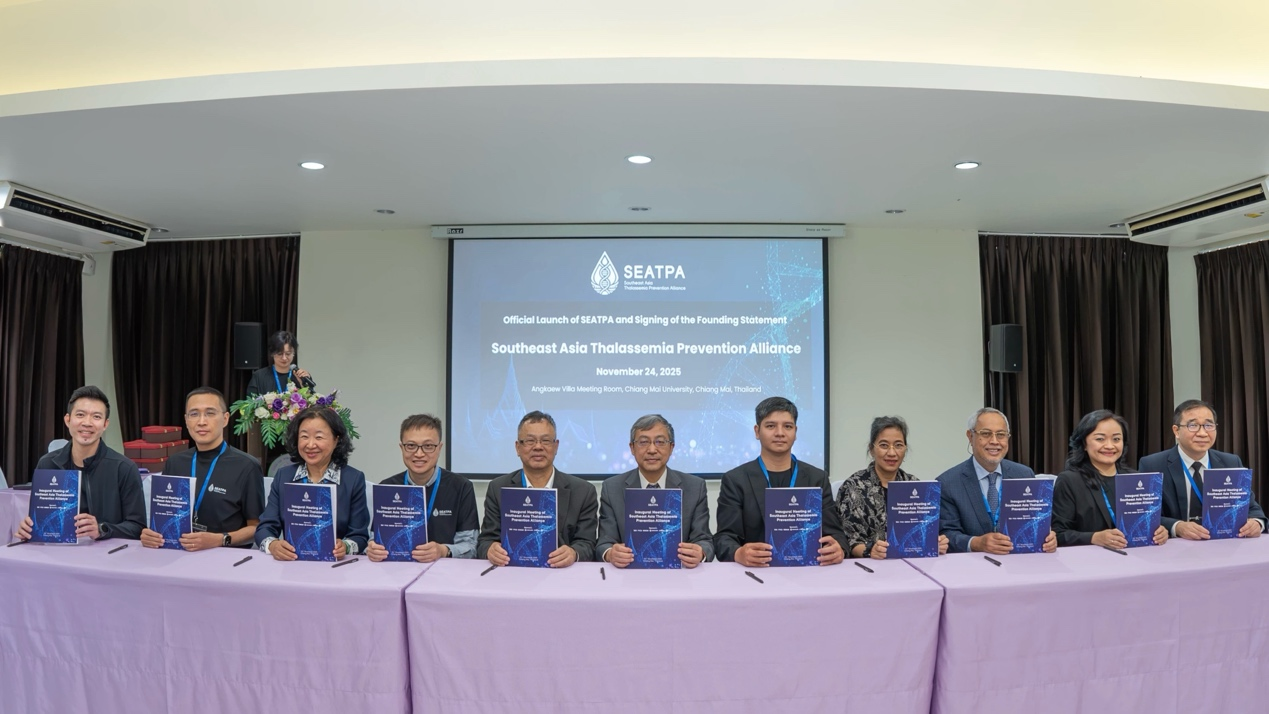 On November 24, 2025, the Southeast Asia Thalassemia Prevention Alliance (SEATPA) was officially launched in Chiang Mai, Thailand.
On November 24, 2025, the Southeast Asia Thalassemia Prevention Alliance (SEATPA) was officially launched in Chiang Mai, Thailand.
The Alliance aims to build a comprehensive thalassemia prevention network across Southeast Asia through a cross-border collaborative mechanism, including capacity buildings, standardized talent training systems, unifying technical specifications, increasing public awareness, and promoting the sharing of experiences in the prevention and control of hemoglobinopathies.
Thalassemia is caused by impaired hemoglobin synthesis leading to accelerated red blood cell destruction which severely threatens patients' quality of life and life expectancy. There is an extremely high incidence rate in Southeast Asia, making thalassemia a significant public health challenge.
SEATPA’s mission is to unite countries, experts and communities to strengthen thalassemia prevention and control efforts in Southeast Asia with the vision of eliminating preventable thalassemia in Southeast Asia in the future.
SEATPA Secretariat Cao Sujie stated: "SEATPA will actively build a regional exchange platform, promote capacity building, accelerate the establishment of talent training system and the unified standards, promote the sharing of prevention and treatment experiences, and help significantly enhance the overall thalassemia prevention and control capabilities in the region."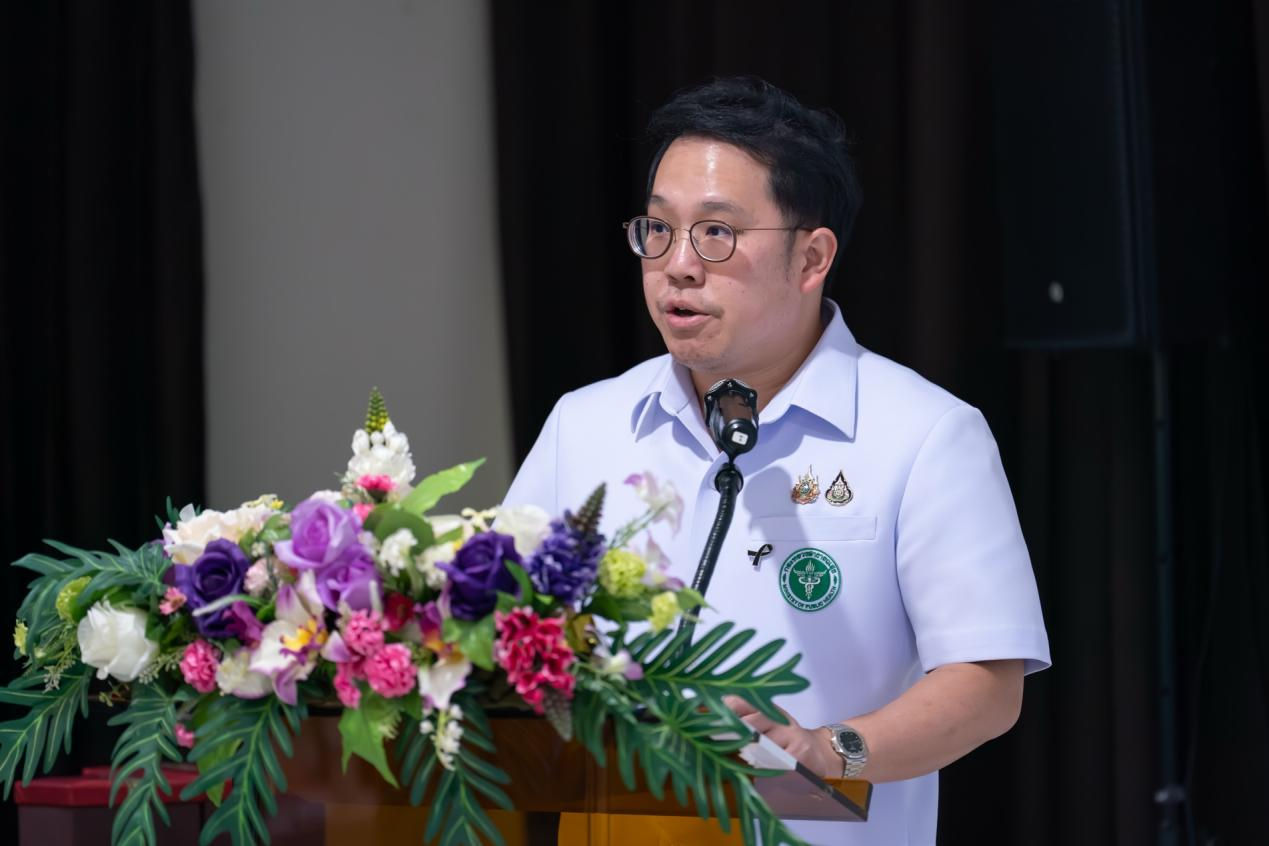 H.E. Mr. Pattana Promphat, Minister of Public Health of Thailand, delivers a speech.
H.E. Mr. Pattana Promphat, Minister of Public Health of Thailand, delivers a speech.
H.E. Mr. Pattana Promphat, Minister of Public Health of Thailand, declared the SEATPA officially launched. In the keynote speech, he said: “The Minister of Public Health fully recognizes the importance of this issue. We have made Advanced Therapy Medicinal Products, or ATMP, together with Precision Medicine, our central policies to strengthen and move our healthcare system forward.”
“This gathering is more than a meeting - it is an opportunity. An opportunity for countries across Southeast Asia, where thalassemia is most prevalent, to share knowledge, exchange solutions, and learn from best practices. Together, we can adapt modern medical technologies to fit the unique contexts of our nations, and together, we can build a stronger regional response. May this conference be a source of inspiration, collaboration, and progress,” he added.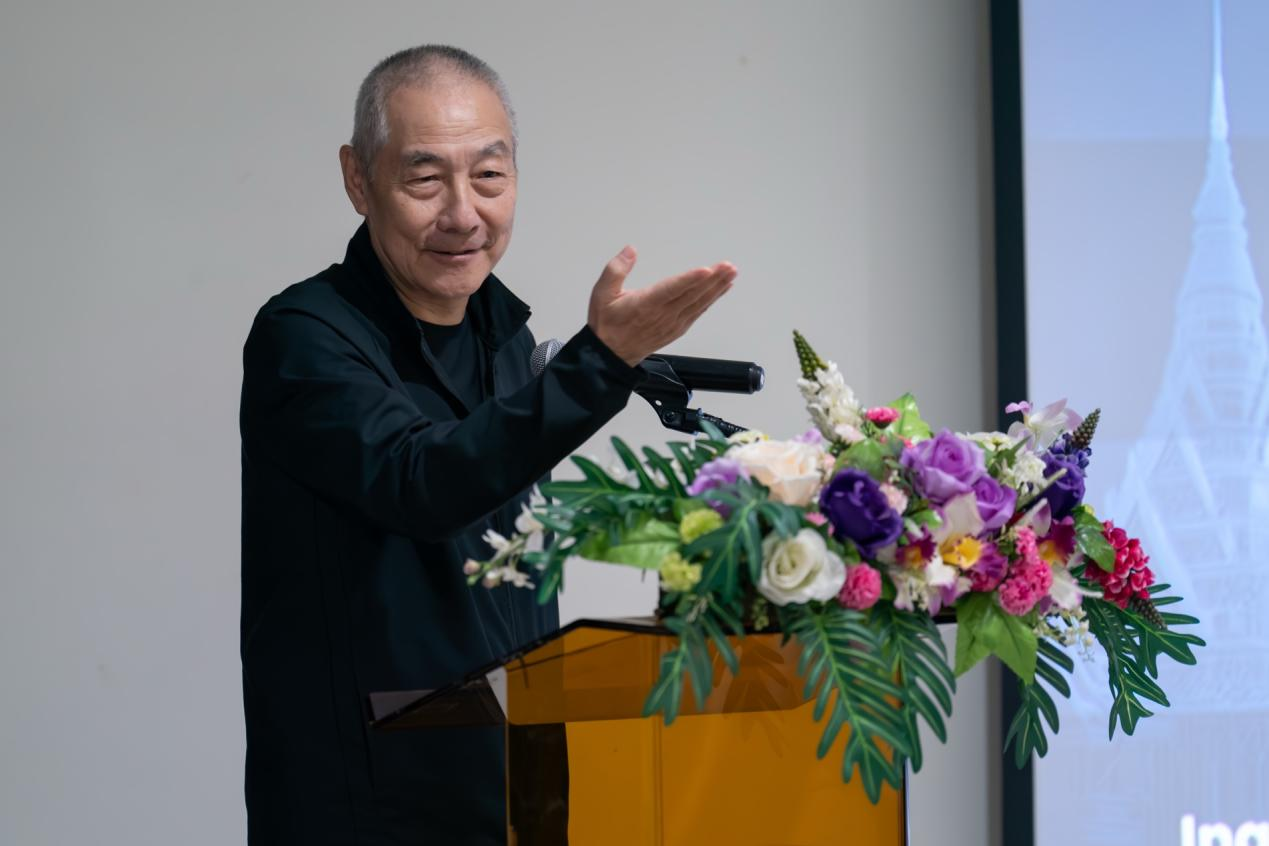 Mr. Wang Jian, Co-Founder and Chairman of BGI Group, delivers a speech.
Mr. Wang Jian, Co-Founder and Chairman of BGI Group, delivers a speech.
Mr. Wang Jian, Co-Founder and Chairman of BGI Group, stated that for precision medicine to truly benefit the whole world, it is insufficient to rely solely on technological breakthroughs; it depends more on deep cooperation on a global scale. Through the Human Genome Project Phase II (HGP2), BGI Group is committed to applying advanced genomic technologies to the early prediction, prevention, and treatment of diseases. With the SEATPA cooperation platform, BGI Group will bring precise screening and treatment solutions to more Southeast Asian countries, promoting the transformation of regional medical models from "passive treatment" to "active prevention," truly benefiting local populations.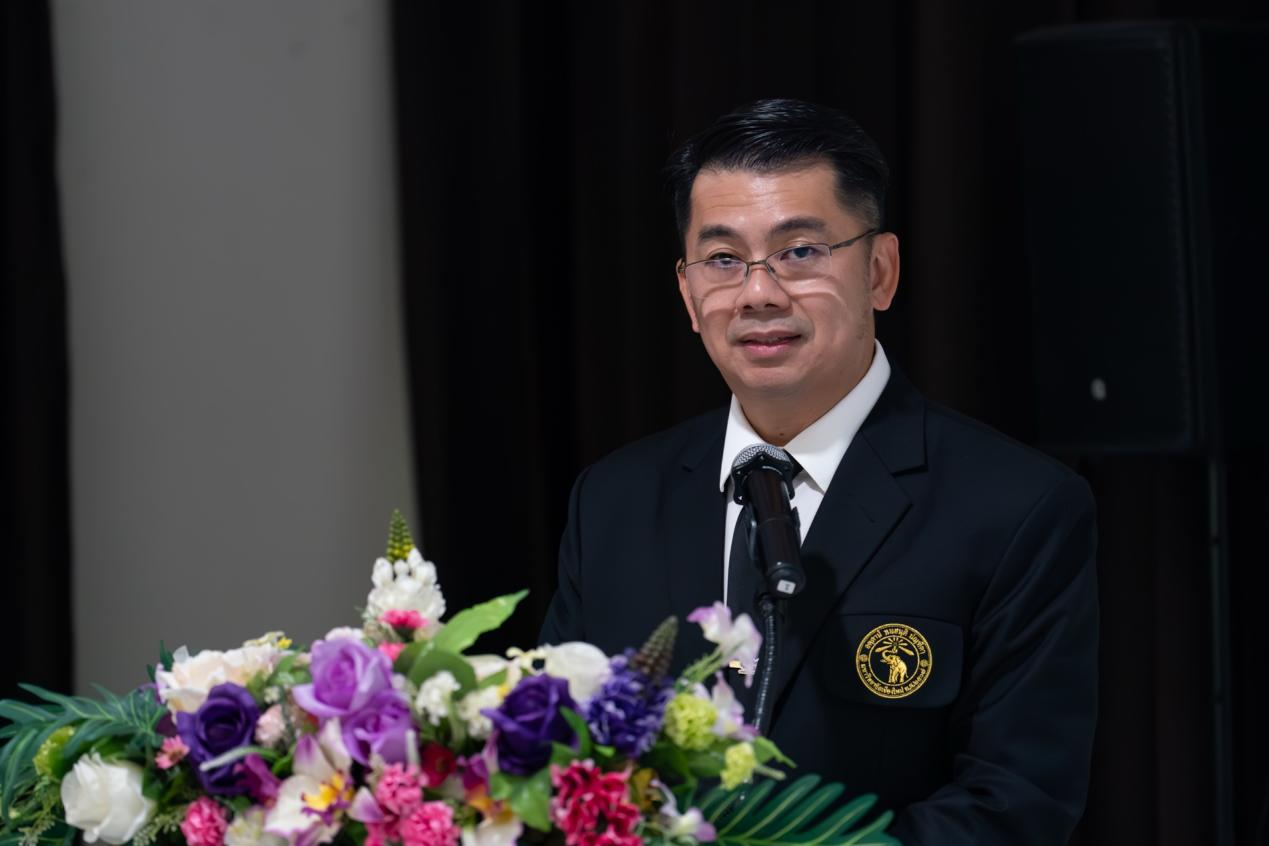 Assistant Professor Piriya Cherdsatirakul, Vice President of Chiang Mai University, delivers a speech.
Assistant Professor Piriya Cherdsatirakul, Vice President of Chiang Mai University, delivers a speech.
Assistant Professor Piriya Cherdsatirakul, Vice President of Chiang Mai University, stated that the establishment of the Alliance represents a "significant milestone" in addressing thalassemia - a major public health challenge in Southeast Asia. He emphasized that this would not have been possible without the leadership and dedication of partner institutions, including the BGI Group. The Alliance aims to strengthen thalassemia control across borders and generations through regional cooperation, laying a foundation for improving the quality of life for patients and bringing renewed hope to the region.
Since the Human Genome Project at the beginning of this century to the current rapid expansion of genomics technology, BGI Group has always been committed to the mission of using gene technology to benefit mankind. With the extensive experience in developing new research and therapies, including gene therapy, BGI Group is aiming to improve the treatment of thalassemia patients.
For example, in Thailand, BGI has collaborated with the Eastern Economic Corridor Office and the Thai Ministry of Health, to initiate clinical trials for gene therapy for thalassemia. A number of institutions, including the Faculty of Medicine Siriraj Hospital at Mahidol University, Chulalongkorn University's Faculty of Medicine, and the Thai Clinical Research Center partnered with BGI Genomics, a subsidiary of BGI Group, to streamline thalassemia gene screening and treatment processes.
In 2023, a memorandum was signed to enhance thalassemia prevention and treatment. As well as evaluating the efficacy of high-throughput sequencing-based technologies compared to traditional screening methods.
Additionally, BGI Group has collaborated with the Faculty of Associated Medical Sciences at Chiang Mai University to conduct a comparative study on the performance of Thailand's current screening method versus BGI’s screening technology for thalassemia.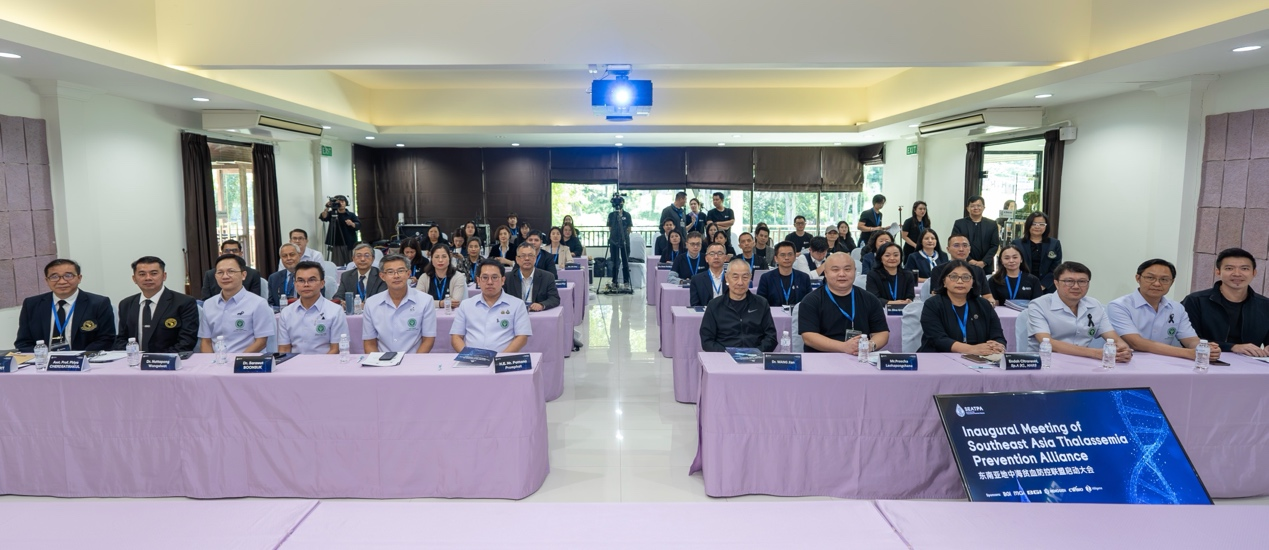 Group photo of the guests.
Group photo of the guests.
The launch of SEATPA marks a historic step forward for Southeast Asia in the prevention and treatment of thalassemia. By building a close cross-border, multidisciplinary cooperation network, the alliance will be dedicated to significantly reducing the incidence of thalassemia in Southeast Asia, improving the quality of life of diagnosed patients, and helping to alleviate the heavy economic burden on patients' families and society.
For information about SEATPA, please visit: https://en.genomics.cn/SEATPA/index.aspx



